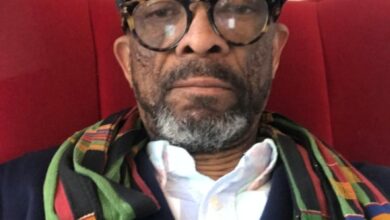
Military Transitional Government

Omer B. Abu Haraz
In all successful and stable governance in many countries, especially the developed, governance is normally fully civilian & democratic. The military is always far away from governance. In all of those countries, the constitutional role of the army is the protection of the borders and the safeguarding of the citizen’s safety and security. Almost all ministers of defense are civilians. Therefore, the normal situation is a civilian government and the exception is a military.
In all countries in the second and third world which were under military rule, their people suffered from systematic harassment, deprivation of political and social freedoms, inequality, injustice, and absence of the rule of law.
Under military rule, all kinds of corruption flourish, and high amounts of dear money go to the pockets of privileged members of the military regime. This is mainly due to the forced absence of legislative bodies which observe good governance of accountability and subject perpetrators to fair justice.
Most of the military regimes after a short period from their assuming of power by coups, resort to creating tailored bodies of legislation through rigged elections to mask the real face of autocratic governance. Those bodies close their eyes to the absence of the rule of law and corruption crimes.
So, the presence of such bodies is more damaging than their absence in Sudan, the most regrettable sad fact is that all three coups which allowed autocratic military rule since independence in 1956 were planned and imposed by civilian political parties and ideological movements. Out of 66 years after independence, only 12 were under the democratic civilian parliamentary rule.
The first coup of November 1958 was a handover from Umma party prime minister and minister of defense Abdallah Khalil when he asked the army commander in chief, General Abboud to take over under unfounded untrue allegations that the country’s sovereignty is threatened by foreign intervention. This was not true. The truth was that his government would face a cast of no-confidence in the parliament session of 17th November 1958 – the date of General Abboud’s coup -. Abboud’s regime ruled for 6 years.
The second coup of May 25, 1969, was planned and successfully executed by Communist Party, the Arab Nationalists, and other leftist officers, in retaliation for the banning of the Communist party and expulsing its 11 members in the parliament of 1965.
The third coup was fully planned and successfully executed by the Sudanese Islamist Movement.
The common factor which shacked the governance in Sudan, military or civilian, was the growing resentment of the leaders and citizens of South Sudan since 1955.
Three military insurgencies erupted in South Sudan under two military movements. Ananya under the leadership of Joseph Lago in 1962 and Sudan People Liberation Movement/Army (SPLM/A) under the leadership of Colonel John Garang in 1983.
The military in their 3 years of rule resorted to military combating without thinking of the main cause of the insurgencies which was the clear marginalization of the South under full deprivation of equitable development in all aspects – education, health care, infrastructure, and basic services -.
Now the country is in a precarious juncture of either stability and good civilian governance or anarchy.
It is now a well-established fact that a consensus in the civilian component is impossible.
The only safe way out is entirely in the hands of the military component. They have to be genuine about their declaration of refraining from governance and the following pragmatic steps:
- An unequivocal statement that they don’t intend to stay in power longer than one year during which general transparent elections for a President are to be conducted. The elected president is to form a cabinet and prepare for a parliamentary election within two years. The military returned to barracks at the onset of electing the President.
- The one-year transitional period is to be governed by military officers in service who are known to be non-partisan and have no ideological affiliations or background.
- All this should be agreed upon between the military and the international brokers – UNITAMS, troika, and EU – to avoid any international sanctions as they will be guarantors of the transition to civilian democratic rule in Sudan.




